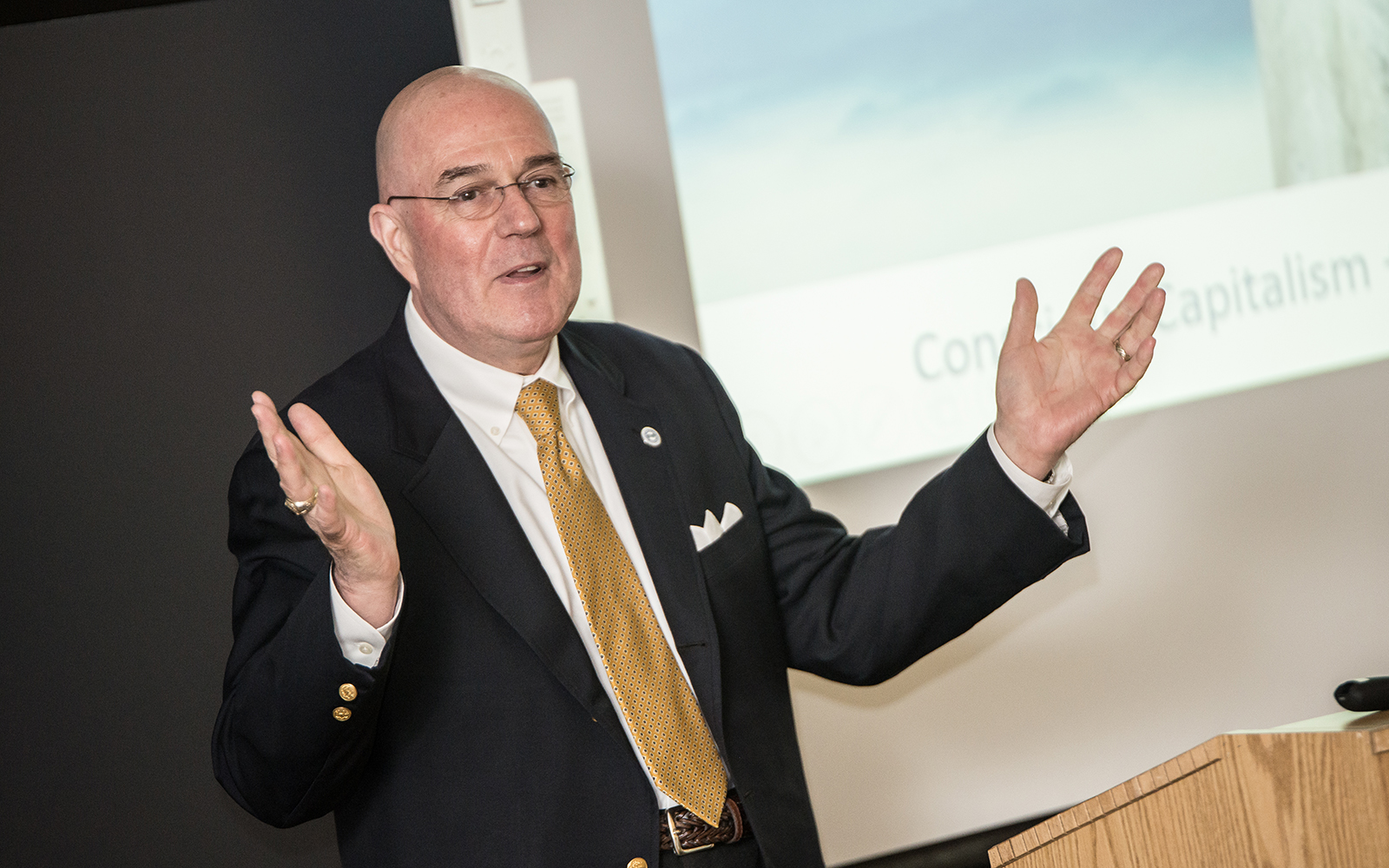
Connecticut CEO Speaks to Undergraduate Students about Conscious Capitalism
A Connecticut CEO presented to undergraduate students on April 25 about how business can serve a higher social goal through the introduction of ‘Conscious Capitalism’ into the organization.
Founded in 2010 by the CEO of Whole Foods and a professor at Babson College, conscious capitalism aspires to rethink business through the lens of a higher social purpose.
Larry Bingaman spoke on conscious capitalism to students in an honors section of the “Legal Environment of Business” course. Bingaman is the president and chief executive officer of the South Central Connecticut Regional Water Authority, an innovative water utility that offers a vital service, strengthens the communities it serves and protects natural resources for future generations.
Conscious capitalism, Bingaman said, is a “part of a global awakening that business can be used to benefit humanity.”
Bingaman summarized conscious capitalism as incorporating four distinct principles:
Four Distinct Principles of Conscious Capitalism
First, a firm must have a higher purpose. That purpose should inspire, engage, and energize stakeholders. Businesses should operate with a higher purpose, and not solely for profit.
Second, a firm must have a stakeholder orientation and recognize that stakeholders are interdependent and should be treated fairly.
Third, firms should practice conscious leadership that embraces the higher purpose of business and creates value for a wide range of shareholders.
Finally, firms should embrace a conscious culture and the values and principle that underlie the social fabric of the business. Such a culture ties the stakeholders to each other and to the purpose, people, and processes that comprise the company.
Students were engaged with questions, and asked how undergraduates could participate in conscious capitalism. Bingaman replied that a student can “tie what you do on an everyday basis to the higher goals of conscious capitalism.”
“I was pleased to host Larry for this important presentation,” said Robert Bird, professor of Business Law and the Eversource Energy Chair in Business Ethics. “This is yet another opportunity to expose students to values-driven principles of business. I hope that each student can embrace ethical principles such as conscious capitalism when they graduate from the School of Business and become future leaders for their employers.”